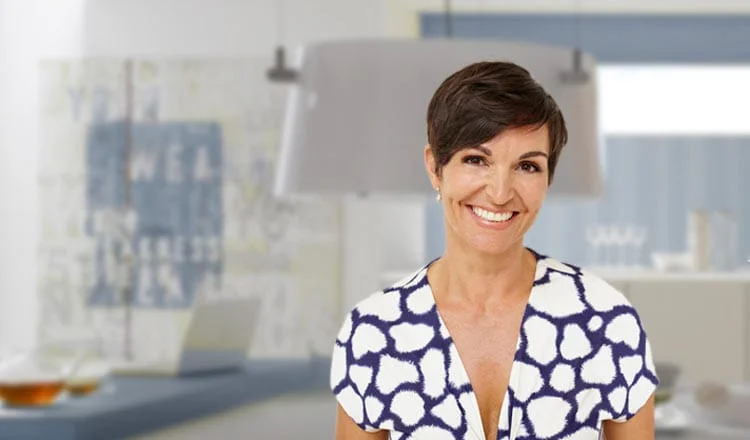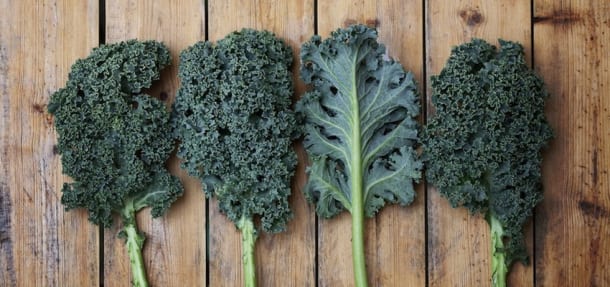The official nutritionist of the TODAY show believes the ultimate healthy diet is based on the key foundations and getting the mix right. It’s this accessible, commonsense approach to health and nutrition that formed the basis of The Dr Joanna Plate, a simple eating model that can be applied to every meal, regardless of whether you’re cooking at home or ordering from a menu.
“You and I could go out for lunch and order with the plate in mind, making sure it sticks to that plan,” said Dr. Joanna McMillan. “Once you have my plate model in your head, it works anywhere. You just understand about food. It’s a lifetime model.”
And the system clearly works. Dr Joanna is a vision of health and who wouldn’t want to look and feel like that?
“For me it’s always been about a very holistic view point of your life and the way you live your life as opposed to extreme things which can become quite cult-ish and very much about judging yourself based on behaviours,” she said. “That language gets to me, I have never been a health expert that sits on their high horse and waggles their finger with a `look at me I am so much better than you’ message. It’s not helpful.
“I enjoy a glass of wine, I have a day where I skip my exercise, it’s not about being perfect every single minute every day. You have to enjoy your life to the full but to also have that balance. It’s often over-used but balance is so indicative of where we need to go.”
It’s this `holistic view point’ that has formed the foundations of the new Dr Joanna`Get Lean’ program. Based on a fresh, personalised, research-based approach, Get Lean acts as an information hub on food, healthy living and nutrition.
“What I really emphasise with Get Lean is that it’s not another fat loss program, it’s not extreme, there’s no diet plans, I literally guide you and hold your hand to help you achieve your health goals,” she said. “But there is no end, you can join as long as you want, opt out whenever you like, there’s no contracts. It’s important my members want to be there, it’s a work in progress towards changing their lives to live more joyfully and ultimately to have more vitality.”
To make your daily choices healthier and easier, Dr Joanna key devised 8 steps to boost your health;
- Don’t smoke
- If you drink, do it the French way enjoying a glass of wine or two with a meal, rather than binge drinking the aussie way on weekends!
- Move briskly for at least 30 mins every day – walking is perfect. If you can add 2-3 more vigorous exercise sessions into your week.
- Eat more veggies aiming for at least 5 serves a day, and a couple of pieces of fruit
- Choose healthier fats over trying to go fat-free e.g. such as extra virgin olive oil, avocado, nuts and seeds
- Choose wholegrains and legumes and cut back on refined grains and those with too much added sugar
- Aim for at least 7 hours sleep a night
- Find and relish joy in your life!
As a trained fitness instructor Dr Joanna is an avid exercise enthusiast and mother of two very energetic boys, she is also a member of Dietitians Association of Australia and The Nutrition Society, and a proud ambassador for The Skin & Cancer Foundation, Diabetes Australia and Foodbank NSW. So it’s suffice to say her nutritional advice is backed by science and research.
“Basically if someone has done a science degree they are taught to be critical of study, not just taught by dietary guidelines,” she said. “They know to research and assess, to understand where the dietary guidelines have come from, how to make diets individual for people. That is our skill as a nutritionist. We find the best diet for them, that’s the difference.”
And when it comes to our diet and health, Dr Joanna says there is no one-size fits all approach. Sugar has been practically banned from many health convert’s shopping lists and kicked off a booming sugar-free food industry lately, but just how bad is it?
“All of us (dietitians) agree on cutting down on added sugar, I have been studying for 20 years and that is one of the things that hasn’t changed,” she said. “It might be stronger advice now but it is certainly something we lose our head over a little bit.
“Many of the new recipes coming out replace sugar with brown rice syrup instead and then call it sugar-free food, why is it different to extract one sugar from one plant and not another? It complicates the factors. I am hearing at the moment of some brands doing things like using maltodextrin instead of cane sugar so when they sell it, they don’t have to count it as part of the product’s total sugar and that product can be called sugar free. This manipulation of diet is getting confused because of these very simplistic messages. That is my major concern.”
Unfortunately it’s the extreme fad diets that get the major media headlines, but Dr Joanna is more concerned about the more than two million Australians struggling to put food on the table and manage their weight.
“My only problem with some of these new diets is they’re not in tune with affordability,” she said. “The Australian population is going to double by 2075 so it’s just not ethical to promote a diet that isn’t sustainable. High meat diets are an environmental nightmare. To me it seems elitist; we have to think about what’s right for climate change and our planet and how we are going to feed everyone. That’s a much bigger picture. It shouldn’t be about whether the eastern suburbs and northern beaches can eat a good diet, I want everyone to understand the key principles of eating better, it has to be achievable by everybody and it is.”
Superfoods is the buzz word now with goji berries and kale on the mainstream menu. But for Dr Joanna, superfoods “don’t have to be fancy”.
“We often forget about everyday superfoods,” she said. “Basil is as much a superfood to me as goji and kale. A good diet is also affordable and achievable for everyone. We can all grow our own basil or dill in a pot on a windowsill, buy fruit and berries. Making sure you’re having lots of brassica and cabbage is great too, certainly kale is fantastic but it isn’t the only one there are other alternatives and choice.
“Don’t get caught up in the superfoods, they may well be good for us but there are plenty of everyday alternatives. Certainly there’s a benefit to having spinach, kale and watercress but iceberg is still beautiful too. There are more nutritious choices and include a few of them (superfoods) but it’s more about your total diet and diversity.
“Getting too much of one thing isn’t necessarily good for us, we might be overdosing on something. The most important thing is ensuring the foundation is rich in plant food, loads of different veggies, have both cooked and raw, and a bunch of different fruits, that is really the basis. Use nuts, seeds, whole grains, fish and seafood, and good quality meats, this diversity will give you great health.
“A good diet is not all about your weight, that is one inflection, but not the only one,” she said. “If you are slim it doesn’t mean you are off the hook and diet doesn’t matter. Regardless of your weight, these are the things that are important for us all and if you get them right then your weight takes control of itself long term, your brain functions better, your ability to exercise improves and your ability to fall pregnant, if that’s your end goal. There are all sorts of different ways of measuring how well we are, and having a sense of vitality.”









